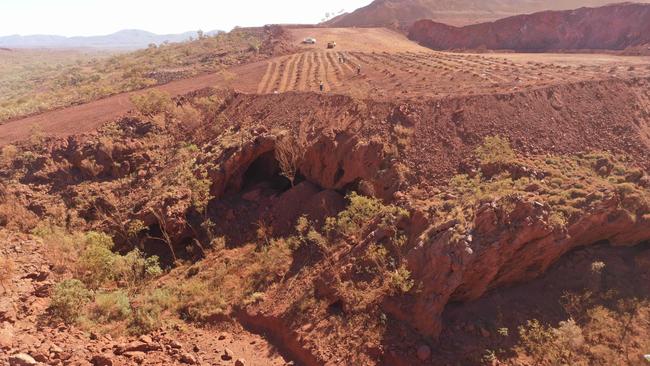WA’s Aboriginal heritage experience could hurt voice, Libs warn
A petition calling for a six-month delay in implementing new Aboriginal heritage laws attracted almost 30,000 signatures.

The difficult introduction of Western Australia’s new Aboriginal heritage act could damage the chances of the Indigenous voice to parliament, state Liberal leader Libby Mettam has warned.
Ms Mettam, who has said she will vote yes in the referendum, said community concerns were growing about the potential impact of heritage laws passed in the wake of the Juukan Gorge controversy.
“There is a lot of confusion out there in relation to both the voice and also the Aboriginal Cultural Heritage Act,” she said.
“Anthony Albanese could do a better job when it comes to promoting what the voice actually represents and what it will mean for Australian people. And quite clearly, the unintended consequences and the confusion surrounding the Aboriginal Cultural Heritage Act have also raised similar concerns.”
The opposition has been hammering the Cook government over the upcoming introduction of the heritage regime, warning its implementation has been rushed. It has argued the legislation could lead to legal problems for landowners who want to remove soil, dig a trench or install a new fence line, or for charity organisations wanting to clear rubbish out of waterways.
The opposition on Wednesday presented to parliament a petition of almost 30,000 signatures calling for a six-month delay to introducing the system. It is believed to be the biggest such petition in at least 40 years.
Ms Mettam said while she still supported the voice, the feared the heritage act was harming the referendum campaign. “I believe that this is certainly having an impact on the support for the voice across WA,” she said.
The man who launched the petition, Pastoralists and Graziers Association of WA president Tony Seabrook, has warned the heritage laws could involve huge compliance costs for farmers.
Premier Roger Cook has said that farmers will be largely unaffected by the heritage changes, given they won’t need any new approvals for continuing their existing operations.
But Mr Seabrook said that ignored the fact many farmers were continually modifying their properties, including moving fences and digging trenches.
Mr Cook has been steadfast in his refusal to delay the implementation of the scheme, which comes into effect on July 1.
He said the fears being aired echoed those when other changes were introduced.
“Every time these other debates come up, people predict the end of the world,” he said.
“And lo and behold, when these laws come into being, they actually find that the world is a better place, and that we can continue to go about our business. That will be the experience.”
The new regime includes penalties of up to $1m for individuals and up to $10m for corporations that damage cultural heritage sites, as well as potentially imprisonment.




To join the conversation, please log in. Don't have an account? Register
Join the conversation, you are commenting as Logout